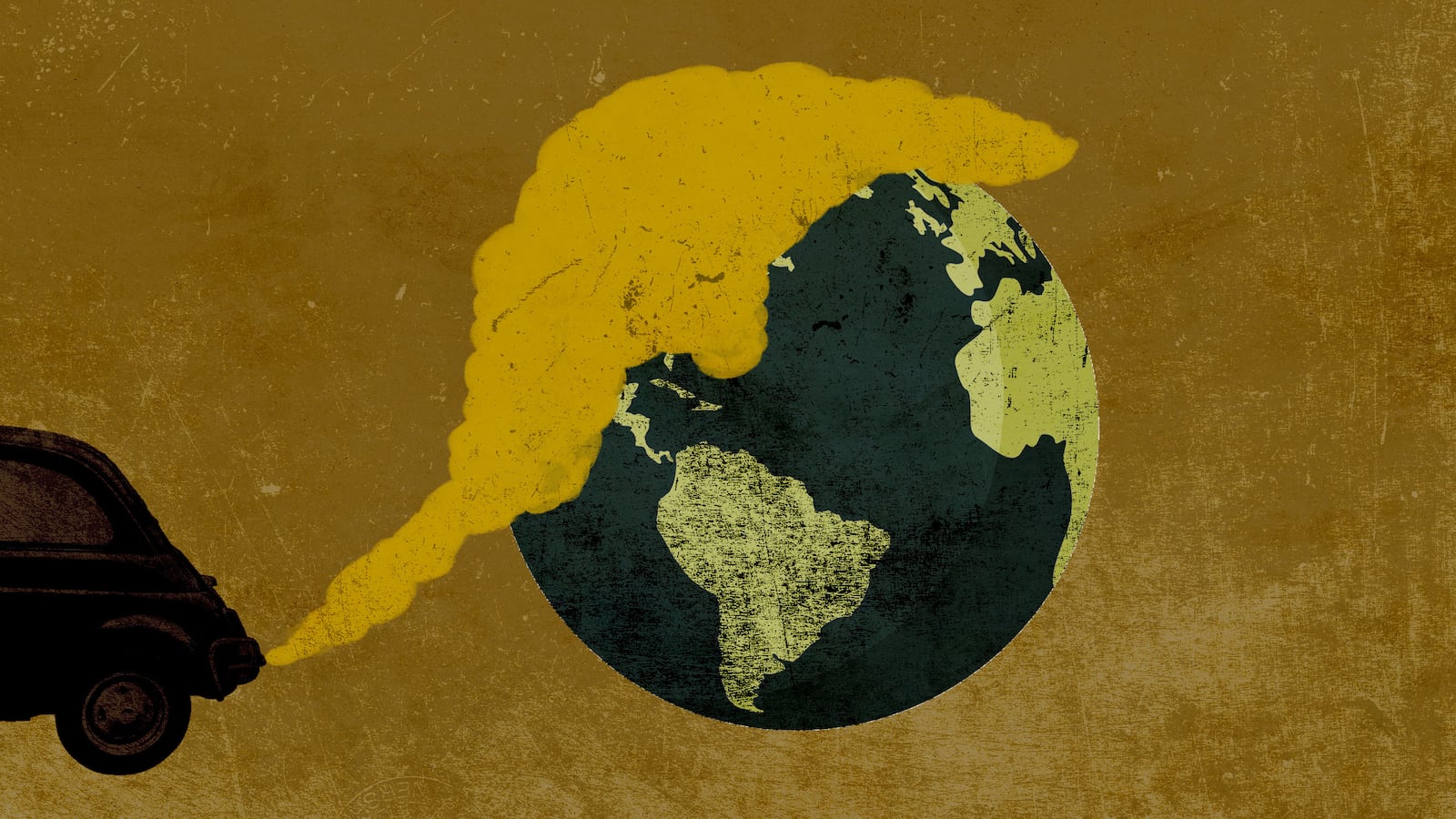This summer, the National Highway Traffic Safety Administration (NHTSA) released a 500-page environmental impact statement.
Buried within the pages, it snuck in a well-known but horrifying climate prediction: At their current pace, global temperatures will rise seven degrees Fahrenheit by 2100.
That prediction wasn’t used to advocate for more stringent climate policy. Instead, NHTSA used the figures to justify President Trump’s decision to freeze Obama-era efficiency standards at the model year 2020 levels through model year 2026.
But the projected seven degree rise is not inevitable, experts say.
“What [the NHTSA draft’s] saying is ‘the best that’s going to happen is that no one’s ever going to do anything to fight global warming ever again,’” David Pettit, a senior attorney at the Natural Resources Defense Council, told The Daily Beast.
To Pettit, that’s “very unusual, and it’s crazy. I would say—if I were wearing my lawyer hat—it’s counterfactual. It’s not going to happen. A lot of countries, including China, and the big industrial companies, are taking steps to fight global warming.”
Obama era standards finalized in 2012 required automakers to almost double the fuel economy average of new vehicles, with the minimum standard rising from 35.5 miles per gallon in model year 2016 to at least 54.5 miles per gallon in model year 2025.
Under the Trump administration, minimum fuel efficiency will be frozen at around 37 miles per gallon in model year 2021, barely higher than Obama’s model year 2016 standard. By 2030, Trump’s proposed freeze would lead the United States to consume up to 644,000 barrels of oil each day, costing drivers anywhere between $193 to $236 billion through 2035.
NHTSA’s statement implies the seven degree projection means our climate is doomed no matter what we do, so there’s no use debating small fluctuations in fuel efficiency policy that wouldn’t make a difference.
Ilissa Ocko, a climate scientist at the Environmental Defense Fund, called that reasoning “totally inaccurate,” and “a really bizarre statement based on their own analysis.”
“[NHTSA’s] interpretation of their results is totally backwards,” she said, pointing out that NHTSA’s model could just as easily be used to show an alternate reality—if the world worked to cut global emissions of CO2 and methane in half in the next decade and maintained that reduction through the end of the century, global temperatures would rise only three degrees.
Ocko added that NHTSA’s model uses statistics to make an argument that’s extreme and deceptive.
“You have to start somewhere. You can’t all of a sudden slash emissions by 50 percent by changing something small for no cost. That’s not how it works,” she said.
She also expressed skepticism about NHTSA’s claim that avoiding severe global warming above even 3.6 degrees Fahrenheit would “require the economy and the vehicle fleet to move away from the use of fossil fuels, which is not currently technologically feasible or economically feasible.”
“To say that we don’t have the technology or it’s not economically feasible doesn’t make any sense to me,” Ocko said. “It actually can be very affordable and cost-effective to pursue these cleaner energy sources. And the technology exists, and we’ve been scaling [it] up.”
“It’s just false,” Pettit added. “There are economically sound ways of switching away from fossil fuels. In my view, it’s not even a question of engineering anymore, it’s a question of political will. Everybody knows how to do this, we just need to do it.”
The EPA did not respond to a request for comment. NHTSA stated that they “welcome comments on all aspects of the environmental analysis,” but did not immediately respond to further requests.
John Reilly, a co-director of MIT’s Joint Program on the Science and Policy of Global Change emphasized that the Trump administration is right about one thing: The U.S. can’t do it alone.
“Any country acting by itself is not going to have that big of an impact. It really does take most of the world acting together,” Reilly told The Daily Beast.
“If we don’t do our part, and want to free ride on the rest of the world, I guess in principle we could do that. But if we start getting free riders, then other people decide to free ride and the whole thing falls apart.”
By NHTSA’s own admission, freezing fuel efficiency standards alone could lead to more than 16,000 missed work days and nearly 300 additional premature deaths each year by the middle of the century. That’s on top of the 1,400 additional premature deaths each year that the EPA predicted to occur as a result of Trump’s relaxed standards for coal power plants.
“We’re not doomed,” Pettit said. “But currently, we’re being really stupid.”








